Bernie Sanders announces $150 billion plan to expand broadband access
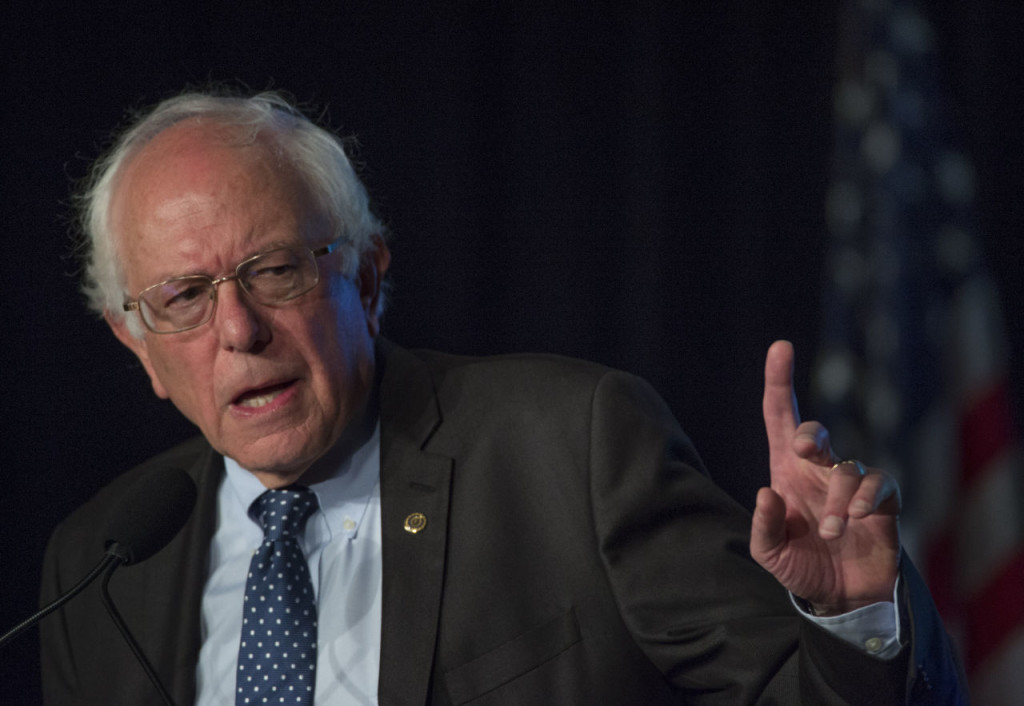
Democratic presidential candidate Bernie Sanders is promising to invest $150 billion to bring high-speed internet to “every household in America” while breaking up and better regulating monopolies he says currently limit access to drive up their profits. The Vermont senator on Friday unveiled a plan providing that funding in infrastructure grants and technical assistance to states and municipalities through Green New Deal climate-change fighting initiatives — allowing them to build what he called “publicly owned and democratically controlled, co-operative or open access broadband networks.” Sanders also wants to set aside $7.5 billion to increase high-speed broadband in Native American communities nationwide and increase funding for the Federal Communications Commission’s Office of Native Affairs and Policy. Citing FCC data, Sanders said that in rural areas, about 30 percent of Americans lack access to broadband internet access. The senator also says that, as president, he’d require all internet service providers to offer a “Basic Internet Plan” providing “quality broadband speeds at an affordable price.” He also vowed to break up internet service provider and cable monopolies, prohibit service advisers from providing content and wipe out “anti-competitive” mergers. “It is outrageous that across the country millions of Americans and so many of our communities do not have access to affordable high-speed internet,” Sanders said in a statement. He isn’t the only Democratic presidential hopeful promising to improve internet access in rural areas and other under-served communities. Massachusetts Sen. Elizabeth Warren wants to create a “public option for broadband” managed by a new Office of Broadband Access using an $85 billion federal grant. Former Vice President Joe Biden has released a plan to revitalize rural America that includes a $20 billion investment in rural broadband infrastructure. Republished with the Permission of the Associated Press.
Grant to expand high-speed internet access in rural Alabama
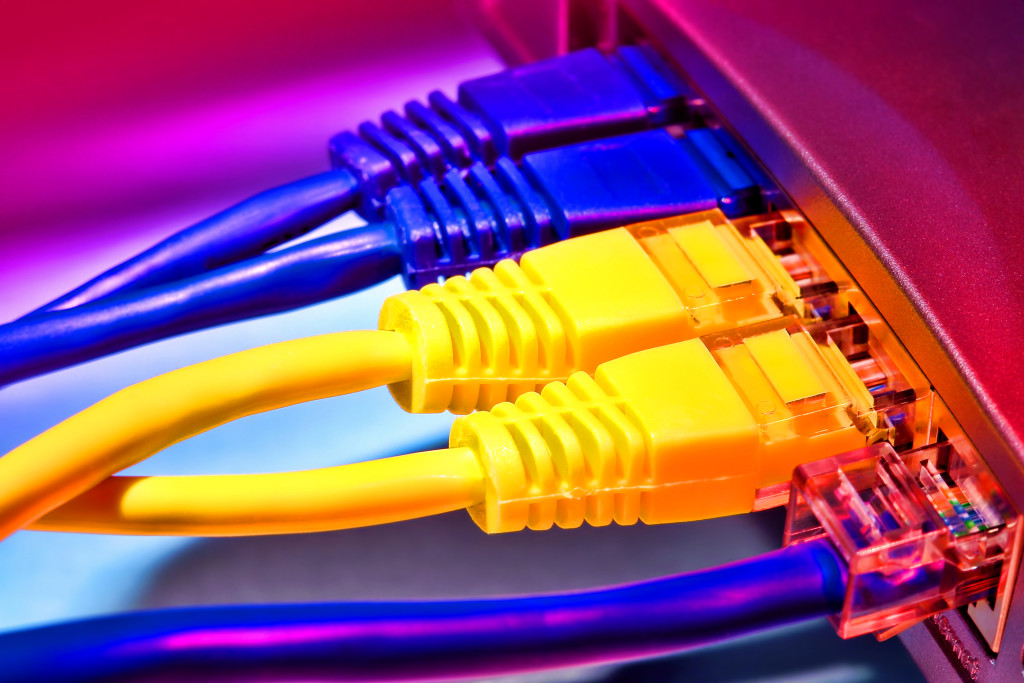
About $29 million in federal funding announced Thursday will help expand high-speed internet access in remote parts of rural Alabama, officials said. The Department of Agriculture is providing the money in grants and loans to Tombigbee Communications, which serves much of Alabama northwest of Birmingham. An announcement said the company is developing a fiber-optic network that will cover underserved areas in Fayette, Franklin, Lamar, Marion, Walker and Winston counties. The area includes some 1,100 square miles with more than 2,100 households plus 15 businesses, 20 farms, five schools and other facilities. Residents should have ultra high-speed internet service in three to five years, a statement said. The fiber optic service already is connected in Hamilton and Winfield, and construction is underway in Hackleburn, Haleyville, Sulligent and Vernon. Tombigbee Communications is a subsidiary of Tombigbee Electric Cooperative. Republished with the Permission of the Associated Press.
Seven communities awarded Broadband Accessibility Fund Grants by Kay Ivey

Governor Kay Ivey announced in a statement on Tuesday that seven communities were awarded the first Broadband Accessibility Fund Grants totaling $1.1 million. She said “These grants may only represent one step in terms of providing high-speed internet opportunities to rural Alabama, but it is a monumental leap for a program that has the ability to positively impact the lives of so many people,” Gov. Ivey said. “By supplying these services to rural Alabama, we are also providing these areas the ability to step up in education, health care and economic development.” In order to qualify for these funds, a community must be unincorporated or have a population of 25,000 people or fewer. The grant cannot exceed more than 20 percent of the total cost of the project. The Alabama Broadband Accessibility Fund is administrated by the Alabama Department of Economic and Community Affairs. In Ivey’s statement, ADECA Director Kenneth Boswell said “Providing broadband services to Alabama’s rural communities is in many ways the equivalent of providing those same areas with electricity in early 20th Century,” He continued “ADECA and Gov. Ivey share the goal of supplying this essential service to every part of Alabama.” The Alabama Broadband Accessibility Act, which became law in March 2018, authorized the grant program, to remedy the number of people in Alabama with no or limited access to high-speed internet. As of March 2018, nearly 850,000 people are without high-speed internet, more than 1 million have access only to one wired internet provider, and more than 275,000 had no wired providers available. Providers have been expanding access as well. In December of last year, AT&T brought fixed wireless internet to rural parts of 39 counties that previously did not have internet access. “In today’s digital economy, access to reliable broadband service is critical. My colleagues and I are working hard to create an environment that supports private investment and enhanced broadband access for all Alabamians. I applaud AT&T’s continued investment and am pleased Fixed Wireless Internet is now available in parts of 39 Alabama counties,” said Alabama 4th District U.S. Congressman Robert Aderholt, “With the use of multiple technologies across Alabama, we will close the access gaps that exist in some of our rural communities.” Expanding internet access has been a bipartisan effort. In December of last year, Democrat Senator Doug Jones encouraged rural entities to apply for broadband loans and grants from the U.S. Department of Agriculture (USDA). Jones said, “Today, more than ever, high-speed internet is no longer a luxury, but a necessity. Students rely on connectivity for their education, hospitals and health care providers use telehealth capabilities to reach rural communities, and small businesses need the internet to thrive. It provides economic opportunity, strengthens our communities and connects our workforce throughout Alabama and the nation. This USDA funding is a great opportunity to close the broadband gaps that exist in Alabama and I encourage any eligible entity in the state to apply.” Grants awarded and coverage areas are: Millry Telephone Co. Inc. of Millry – $938,306 for coverage in incorporated areas of Gilbertown and Toxey and some unincorporated areas in Choctaw County. Marcus Cable Associates of Birmingham – $11,022 for coverage in the East Wood Point area in Moulton. Marcus Cables Associates of Birmingham – $11,063 for coverage in the Emerald Ridge area in Chelsea. Charter Communications – $29,567 for coverage in Glen Ridge in southwest Tuscaloosa County. Charter Communications – $6,017 for coverage in Grace Haven subdivision in Boaz. Charter Communications – $8,415 for coverage in the Vickey Lane area in Boaz. Farmers Telecommunications Cooperative Inc. – $74,586 for coverage in the Pea Ridge community near Henagar.
Rauf Bolden: The web, the city and business in Orange Beach
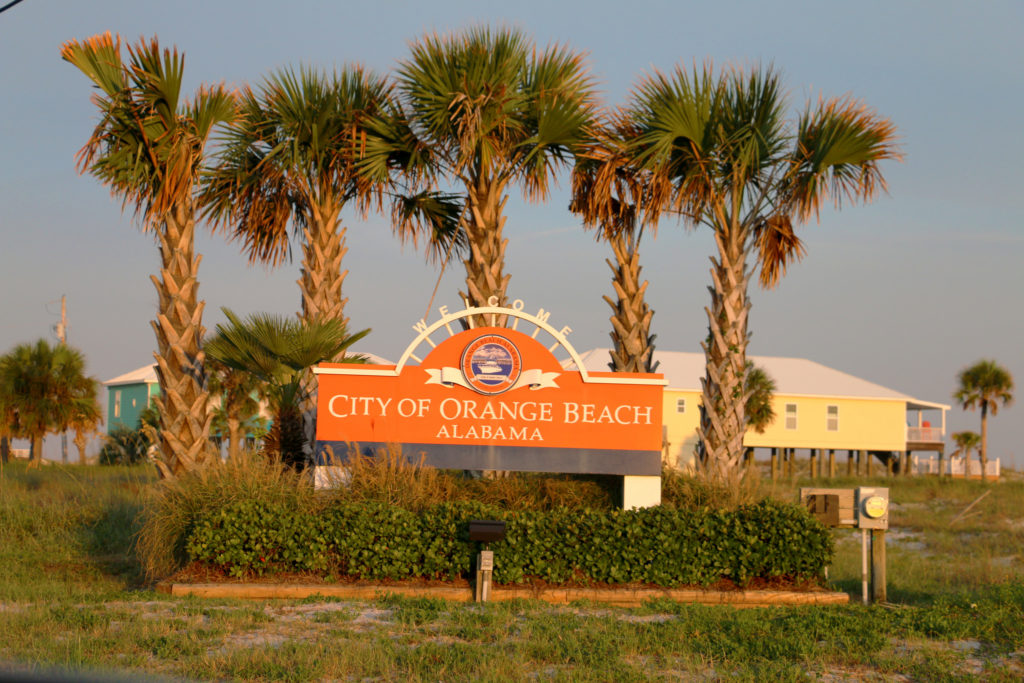
Imagine sitting in an office overlooking the Gulf-of-Mexico taking reservations from your website, booking vacation rentals for condos, houses and charters, answering the phone, checking guests in, depending on the Internet to keep your business going. Web applications, like Airbnb, VRBO, Uber and Lyft, specifically written to streamline the interaction between businesses and vacationers are useful. Governments seek to collect tax, by improving “the economic well-being and quality of life for a community,” according to the Salmon Valley Business and Innovation Center. Resolving this relationship is complicated. Hurricane Irma offered proof for hoteliers and restaurateurs. Being able to respond to changing market conditions is vital. “An estimated 250,000 evacuees arrived into Alabama from Florida as Hurricane Irma bore down on the Sunshine State,” wrote John Sharp in AL.com. Evacuees were able to book rooms, make dinner reservations, or find a shelter with their smartphones or tablets, evacuating west on I-10. Any person with an Internet connection and a credit card can book a hotel room, charter a yacht or purchase goods from the far corners of the planet. When I buy olive oil from Amazon, I am charged tax, assessing the point of sale as Orange Beach, Ala. where the product is delivered. Not all Internet vendors are so obliging. Orange Beach’s revenue has steadily increased since the recession in 2009, 2011 – $35.2 million; 2012 – $34.8 million; 2013 – $43.5 million; 2014 – $40.3 million; 2015 – $47.1 million; 2016 – $48.6 million, according to Audited Financial Documents on the website. Internet is so prevalent in our lives, booking and purchasing online. How can government ensure the people of Orange Beach are getting every cent they are due from online-vacation rentals, or ride sharing services that process credit cards over the Internet? I guess we will just have to trust providers to report honestly, accepting we may have no way to audit Internet retailers. Mark Zuckerberg, CEO of Facebook, is determined to help grow the global community, according to his 6000-word letter on Facebook’s Global Ambitions. This is a utopian idea, assuming the global community will be in Facebook’s image, realizing their appetite for expansion could engulf our short-term rental market as well. Competition already exists from online vendors like Expedia, Kayak, Airbnb and VRBO, booking vacation rentals in Orange Beach. Realtors, property developers and investors have no taste for slowing upward pressure on economic development. Orange Beach had a record-setting year in 2016 with $49 million in revenue less $5 Million in debt payment versus $30 million in expenses, according to Ford Handley, Finance Director for the City of Orange Beach in an email. Planning a way for Internet sales to flourish is important, as this is today’s preferred method of doing business. Business owners with a physical location are at a disadvantage, as they must ensure payment for various business licenses, fees and building permits, obliging them to collect taxes for lodgings, sales, and build-out authorizations, perhaps remitting these online. Internet businesses have an advantage, being outside the jurisdiction, making it much harder for municipalities to collect tax revenue on Internet sales delivered locally. For online sales, “UPS is expecting to deliver more than 30 million packages per day in the lead-up to Christmas. Over the entire holiday season, the company is expecting to handle shipments north of 700 million,“ according to US News. Brick and mortar stores may be in decline, “as the recent bankruptcies and closures of The Limited, American Apparel, Wet Seal, Aeropostale and Pacific Sunwear can attest,” according to Forbes. The pivotal points are about evolving into an online presence or to stay brick-and-mortar, being a difficult decision for the local-business owner. Government on one hand needs to collect taxes from sales in the jurisdiction to pay for services, pitted against online entrepreneurship, selling locally but waving their finger at small-town officials from outside of the jurisdiction. When Internet vendors finally do step up and agree to pay taxes on sales that occur from today forward, we will never know how much money was left on the table over the past decade. Some argue for streamlining government outside of the tax arena with web applications. These are pieces-of-code, allowing Fire, Police and citizens to report streetlight outages from their phone or tablet directly to Baldwin EMC, or potholes directly to Public Works without having to phone, getting re-directed from desk to desk, possibly having to leave a voice-mail after hours. In the Internet era governments are online 24/7, leveraging the technology of well-constructed web applications, consolidating reporting by engaging citizens in the online process of telling City Hall about streetlight outages and potholes, delivering those electronic messages directly to the right desk, is a community-based solution. We cannot solve tax avoidance in the global economy today, but we can use the resources we have, applying our sense of civic responsibility to collaborate on the smaller things, like reporting streetlight outages and potholes. Working together on our collective turf, making life a little less complicated. ••• Rauf Bolden is retired IT Director at the City of Orange Beach, working as an IT & Web Consultant on the Beach Road. He can be reached at: publisher@velvetillusion.com.
Rauf Bolden: Fiber-optic internet to the home in Orange Beach
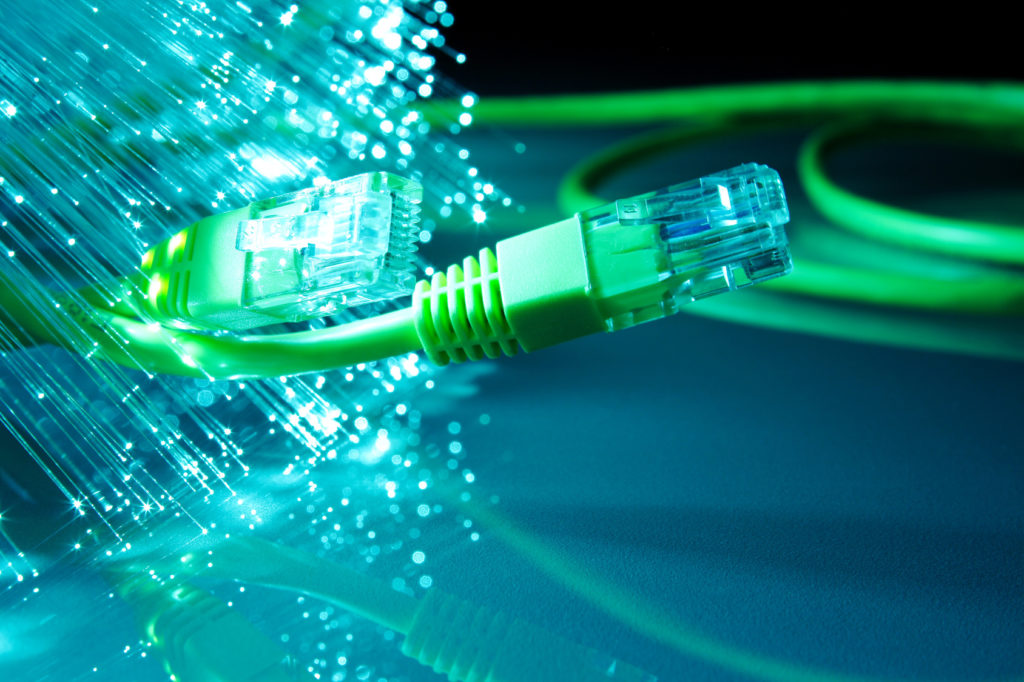
High-Speed or Gigabit Internet defines your quality of life, more than your car, your house, your clothes or your jewelry, allowing you to connect and stay connected with your family or business from the other side of the world, but there’s a catch. The late Councilman Al Bradley of Orange Beach believed in fiber-to-the-home. He espoused a municipality on its own fiber ring, connecting each home to high-speed Internet, making the quality-of-life for residents better. Providing local children with online-educational opportunities is vital. This binds the community together. Fiber-optic is a tiny-glass conduit capable of transmitting pulses of light, converted to data for Internet and phones by “mysterious-black boxes”. The speeds with which fiber delivers these services is always expanding, defining top-tier Internet. People should have high-speed connectivity in their homes, like electric lights and indoor plumbing. Internet is a necessity not a luxury and fiber is the best solution, connecting our lives to our families in ways that were unimaginable ten years ago. Conceptualizing fiber-to-the-home requires imagination, ingenuity and commitment, creating solutions in underserved neighborhoods, ingeniously routing traffic for cost efficiencies, dedicating capital where it is most needed. Alabama Law speaks to Municipal Broadband (State Laws Restricting Municipal Broadband, Alabama Code 11-50B et.seq.), “Public providers wanting to offer telecommunications services must conduct a public hearing and hold an election. Service can only be provided within the utilities territory. Local taxes or other funds may not be used to pay for expenses.” Ideally, a municipality is not the local provider. Partnering with a fiber operator is essential, presenting a public-private partnership to the residents, endorsing the partner’s role as customer-service component for installation, billing and repairs. I respectfully suggest defining the city’s role as financial accomplice, simply paying $2 million for the build out, sharing in the profits over 50 years, and recouping the taxpayers’ investment with a guaranteed-bonus percentage. Legal guidance and planning are crucial for a successful-fiber deployment. The developer is considered a “telecommunications carrier” if he lights the fiber himself or leases it to a third party, falling under Federal FCC jurisdiction, specifically the Telecommunications Act of 1934, according to the Law Offices of Michael L. Glaser L.L.C. on the Telecoms Attorneys web site. Plans are measured by their effectiveness. The fiber provider must give up monthly customer-call reports, what happened, how was the issue resolved, how long to resolution, and any added costs to residents if repairs were needed. This is diligent-municipal oversight. “5.25 million American Homes are now connected to a fiber network,” according to a Public Policy Paper by the Fiber-to-the-Home Council. Fiber cities include: Bristol, Va.; Dalton, Ga.; Chelan County, Wash.; Grant County, Wash.; Jackson, Tenn.; Kutztown, Pa.; and Reedsburg, Wis.. I contacted the Mayors’ Offices of Dalton, Georgia and Jackson, Tennessee via email. Their reps did not return my request for comment. Price is a key issue, establishing a sale point that is comparable to DSL or Cable is optimal. The Utility Board of the City of Sylacauga, Ala. with 12,000 residents, offering fiber-to-the-home, presenting a price structure from $70 – $500 per month, according to their website. This pricing reflects the true cost to residents in Sylacauga, having fiber reliability and faster speeds to their homes. “The Utilities Board of the City of Sylacauga is the sole provider. We are a gigabit city and we offer service within our electric service area and a few areas outside of same. We bring the service to customers on demand. We did not run fiber to every brick and mortar hoping for a subscription,” said Reay Culp, Network Administrator for the Utilities Board of the City of Sylacauga in an email. Political capital is hard won, spending it on a venture that may not be perceived as essential is a risk, requiring education, town-halls and patience, convincing residents to sign up, is harder still. Politicians pushing for fiber-to-the-home are taking a chance, being the voice for innovation, especially when residents cannot see a brick-and-mortar structure reflecting the city’s investment. Assuming taxpayer money went into the cloud is not what elected officials want their constituents to think. The true hazard is caution, seeing an opportunity and not focusing on owning it, calculating risk-reward opportunities is what strategic planners must be seen to be able to do. Fiber-to-the-home is a financial risk, generating huge quality-of-life returns for constituents. “The number of hours Americans spend watching video over the Internet has grown 70% since June 2010 (Nielsen) Revenues from online video services grew by 175% between 2010-2012, from $1.86 billion to $5.12 billion (SNL Kagan). Real-time streaming of entertainment in prime time grew from 42.7% of downloads in 2010 to 67% by Sept. 2013 (Sandvine Global Internet Phenomena Report)”, according to Fiber-to-the-Home’s web site. Caught between action and inaction, some will chose inaction as a safe course through the reef, postponing the fiber-to-the-home decision until later, simply kicking the can down the road. Living-in-denial of the need for better connectivity will only result in cable operators generating more dissatisfied reviews, DSL operators continuing to enrage residents because of poor service, forcing cellular carriers with a reliable but very expensive service to find ways to fill the void with small cells, leaving elected officials looking like they are not doing enough about complaints. None of these scenarios generates feelings of happiness in the community. I support the vision of our late Councilman Al Bradley, believing a municipality is better served by being connected to fiber-optic Internet in every home, municipal building and school. Not investing in fiber-to-the-home places the community at a disadvantage, as you watch others innovate, letting economic opportunities pass you by. That’s the catch. ••• Rauf Bolden is retired IT Director at the City of Orange Beach, working as an IT & Web Consultant on the Beach Road. He can be reached at: publisher@velvetillusion.com.
AT&T expands high-speed rural broadband in Alabama

AT&T has expanded Fixed Wireless Internet for rural parts of 39 counties across Alabama that don’t have access to broadband the company announced Tuesday. “In today’s digital economy, access to reliable broadband service is critical. My colleagues and I are working hard to create an environment that supports private investment and enhanced broadband access for all Alabamians. I applaud AT&T’s continued investment and am pleased Fixed Wireless Internet is now available in parts of 39 Alabama counties,” said Alabama 4th District U.S. Congressman Robert Aderholt. “With the use of multiple technologies across Alabama, we will close the access gaps that exist in some of our rural communities.” FWI service delivers an internet connection with download speeds of at least 10Mbps and upload speeds of at least 1Mbps. The connection comes from a wireless tower to a fixed antenna on a customer’s home or business. This is an efficient way to deliver high-quality, high-speed internet to customers living in underserved rural areas1. “AT&T’s Fixed Wireless Internet is offering my family more options in our everyday lives, at an affordable price,” said Shannon Ary, AT&T Fixed Wireless customer. “With FWI, my husband and I can now work from home, which is life-changing, and our children have increased access to educational tools at home, not to mention videos and gaming with friends. We are excited to have access to this innovative technology and pleased AT&T continues to enhance high-speed connectivity in Arkadelphia and other rural communities across Alabama.” The towers used to provide this service are connected to AT&T’s network using AT&T fiber optics. AT&T has more than 2 million strand miles of fiber optics covering Alabama, which enables the company to offer a wide variety of products and services delivering the high-speed connectivity Alabama businesses and residents need. Parts of the following 39 counties in Alabama are now eligible for AT&T Fixed Wireless Internet service: Autauga, Baldwin, Barbour, Bibb, Blount, Butler, Calhoun, Chambers, Chilton, Colbert, Coosa, Cullman, Dallas, Elmore, Escambia, Fayette, Franklin, Greene, Hale, Jefferson, Lauderdale, Lawrence, Lee, Limestone, Lowndes, Macon, Marengo, Mobile, Montgomery, Morgan, Russell, Shelby, Sumter, Talladega, Tallapoosa, Tuscaloosa, Walker, Washington and Winston.
The end of net neutrality is officially here
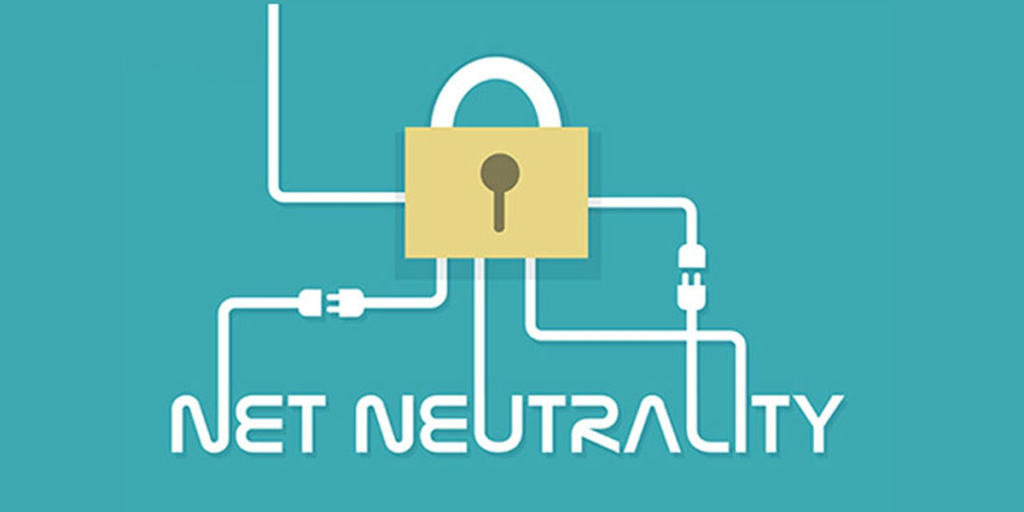
Changes are coming for the way the U.S. government regulates the internet. The Federal Communications Commission (FCC) narrowly voted to dismantle the controversial 2015 Obama-era net neutrality internet regulations — which imposed utility-style regulations on internet service providers (ISPs), which prevented them from blocking, speeding up, or slowing down access to specific online services — in December. Their repeal became official on Monday as part of the FCC’s effort to provide an open Internet while paving the way for better, faster and cheaper Internet access for consumers. On Monday, the FCC implemented the “Restoring Internet Freedom Order,” saying the order “replaces unnecessary, heavy-handed regulations dating back to 1934 with strong consumer protections, increased transparency and common-sense regulations that will promote investment and broadband deployment.” “The 2015 decision to impose these heavy-handed utility-style regulations on the internet was a mistake,” FCC chairman Ajit Pai said in a video, explaining the rules were a “solution in search of a problem” when in fact “the Internet wasn’t broken.” The Internet is “the greatest free-market success story in history,” Pai wrote in a Wall Street Journal op-ed published in November. Regulations “designed in the 1930s to tame the Ma Bell telephone monopoly” are hurting investment, he argued in the piece. What is net neutrality? Net neutrality is the principle that Internet service providers treat all data on the Internet the same, and not discriminate or charge differently by user, content, website, platform, application, type of attached equipment, or method of communication. Intent of the Restoring Internet Freedom Order The FCC’s framework for protecting Internet freedom has three key parts: Consumer ProtectionThe Federal Trade Commission will police and take action against Internet service providers for anticompetitive acts or unfair and deceptive practices. The FTC is the nation’s premier consumer protection agency, and until the FCC stripped it of jurisdiction over Internet service providers in 2015, the FTC protected consumers consistently across the Internet economy. TransparencyA critical part of Internet openness involves Internet service providers being transparent about their business practices. That’s why the FCC has imposed enhanced transparency requirements. Internet service providers must publicly disclose information regarding their network management practices, performance, and commercial terms of service. These disclosures must be made via a publicly available, easily accessible company website or through the FCC’s website. This will discourage harmful practices and help regulators target any problematic conduct. These disclosures also support innovation, investment, and competition by ensuring that entrepreneurs and other small businesses have the technical information necessary to create and maintain online content, applications, services, and devices. Internet Service Providers must clearly disclose their network management practices on their own web sites or with the FCC. For more information about these disclosures, you can visit https://www.fcc.gov/isp-disclosures. Removes Unnecessary Regulations to Promote Broadband Investment The Internet wasn’t broken in 2015, when the previous FCC imposed 1930s-era regulations (known as “Title II”) on Internet service providers. And ironically, these regulations made things worse by limiting investment in high-speed networks and slowing broadband deployment. Under Title II, broadband network investment dropped more than 5.6% — the first time a decline has happened outside of a recession. The effect was particularly serious for smaller Internet service providers—fixed wireless companies, small-town cable operators, municipal broadband providers, electric cooperatives, and others—that don’t have the resources or lawyers to navigate a thicket of complex rules. Removing these outdated and unnecessary regulations will create a strong incentive for companies to pour resources into building better online infrastructure across the country and bringing faster, better, and cheaper Internet access to more Americans. Alabama opposition Upon arriving to the U.S. Sen, newly elected Sen. Doug Jones made quick on his campaign promises to fight to restore net neutrality provisions. In January, he co-sponsored resolution aimed to do just that — overturn Pai’s decision to repeal net neutrality. “A free and open internet is crucial for our nation to remain a leader in the global economy, provide our children a quality education, and promote freedom of speech,” Jones said in a statement. “Repealing the Open Internet Order would allow companies to raise the price of internet access and discriminate against certain internet traffic. Restoring net neutrality is the right thing to do to protect Alabama consumers and to provide an equitable platform for companies of all sizes to compete for their customers.” Senate Democrats managed to pass the resolution in May. It has now moved to the House for consideration, but it faces an an uphill battle. Whether or not repeal of net neutrality has adverse effects on consumers, or actually helps, remains to be seen.
Terri Sewell, Dems push for $40 billion investment in rural broadband

Alabama’s own 7th District U.S. Rep. Terri Sewell joined her Democratic colleagues on Capitol Hill Thursday to unveil the party’s $40 billion plan to bring universal high-speed internet service to all Americans. Dubbed, “A Better Deal: Universal High-Speed Internet,” the plan would invest in broadband infrastructure to connect communities that have been left behind by big internet service providers. The plan would upgrade the nation’s critical safety infrastructure and create accurate maps of areas that lack adequate internet access to ensure rural Americans are not left out. It would also modernize 911 coverage in isolated areas. “Universal high-speed internet is not only possible, but it is necessary to the survival of rural America,” said Sewell. “I come from the Black Belt of Alabama, an area that is rich in culture and history, but one which faces an infrastructure and technology crisis that has handicapped families, workers, businesses and communities. Without reliable access to internet services, my constituents in Alabama are being starved of 21st century opportunities.” According to Sewell, 34 million Americans, including 23 million rural Americans, do not have internet access available at an adequate speed and quality. “Access to the internet has the ability to transform our schools, our hospitals, and our communities by way of connecting rural Americans with resources and professionals from across the country,” Sewell continued. “Today’s proposal to make high-speed internet available to all takes an important step towards providing every American with the tools and opportunities they need to interact and connect with the rest of the world.” Specifically, the plan would: Provide direct federal support for a universal internet grant program to close the ‘last mile’ gap: These new funds would be used to bring high-speed internet infrastructure to areas most in need of quality, affordable service. Support would be distributed on a technology- and provider-neutral basis, and would be designed to secure high-speed internet at levels sufficient for the 21st Century in the most efficient and cost effective means possible. The program would also have broad eligibility so that partners like rural co-ops, local governments, or other alternative entities could compete on an equal playing field with private sector providers. Create accurate maps of areas that lack adequate internet access. Deliver internet speeds needed to compete in the 21st century. Upgrade the nation’s critical safety infrastructure: Grants would be made available to states and localities to upgrade critical public safety infrastructure – most importantly, the nation’s aging 911 systems. Modernizing 911 to ensure that text, data, video, and other essential digital information can flow seamlessly from citizens to first responders through an integrated, interoperable 9-1-1 system.
Blake Dowling: Embarrassing moments of 2017

For those in the spotlight, the internet is not so fun. Not a moment can go by when the world isn’t critiquing politicians, athletes, celebrities and various other public figures. I joke with my fraternity brothers (with whom I hold football season tickets) about how it was such a blessing to have attended college right before smartphones, social media, etc. I remember Friday afternoons and calling my girlfriend; if she didn’t answer (or if I didn’t see her at Po Boys/Brick City/Purple Porpoise/Salty Dog Saloon), I would not hear from her until the next day. Amazing. Going out on a limb here; I seem to remember there might have been a rowdy night was on the calendar. Guess what? No one posted about it, no one saw it, it only lives where it should, in our memories. But these days, to get a glimpse of what college kids are up to today — via sites like Total Frat Move or Total Sorority Move — is almost unbelievable. Do these kids realize they will need jobs someday? A digital reputation follows you everywhere. Anyway, returning to my point before I started thinking about “college” … elected officials and scandals. The web really puts it out there. Let’s take a look: Who can forget Chris Christie and working together for bongs, deleted fast, but not fast enough; the internet is unforgiving. The former first lady and the turnip: While this is the least embarrassing of today’s examples, it still is so not funny that it makes you cringe. But I guess she and someone else thought it was funny. If you haven’t seen the revamp of the Gong Show, check it out. I bring this up because this clip is obviously gong-worthy. Moving on to more recent events … the current resident of the White House posted: “Look at the way I’ve been treated lately, especially by the media,” Trump said in a commencement speech Wednesday at the Coast Guard Academy in Connecticut. “No politician in history, and I say this with great surety, has been treated worse or more unfairly. “No politician in history. None eh? And, of course, the “basket of deplorables,” while not an actual post on the internet through memes and constant press it might as well have been. Thanks to the relentless online commentary it was blasted out to the masses, again and again, and again and again … What is one to do? As I tell people if you want ultimate security from online threats and a zero percent chance of digital embarrassment? There is a solution. It’s free too. It’s called “stay off the internet.” Practice those speeches boy and girls, double-check those posts and — if you are in a highly visible position — have someone else approve them also. There is also the don’t post/text after 10 p.m. That is a good rule, it should block any post motivated by a cocktail (or two). I occasionally appear on local TV here in Florida, so I know all about saying stupid things on TV. Keep it simple, and your audience will appreciate it. Social media is an excellent tool for broadcasting news and other tidbits that offer an opinion. The rapid-fire delivery will continue to catch us by surprise, and mistakes will happen. Use common sense and have another set of eyes on things, with luck, you will need to ultimately minimize your risk somehow — since staying off the internet is simply not going to happen. ___ Blake Dowling is CEO of Aegis Business Technologies. He can be reached at Dowlingb@aegisbiztech.com, and his favorite beer is Harpoon IPA.
Blake Dowling: The almighty email

Ray Tomlinson invented email in 1972. Tomlinson was an ARPANET contractor and picked the @ symbol to reference digital communications between computers. Since then, things have changed — just a wee bit. In a perfect world, organizations use email to share quick bursts of info with clients, colleagues, constituents, etc. But, in the real world, people send massive files, keep enormous inboxes, all while sending the most confidential voter, medical and financial info. Designed as a communicative tool for nonsensitive info, people are now using email as the send-all-be-all of their organizations. If you don’t archive your emails and use a file structure (outside of your inbox) think about giving that some time. Digital organization is greatness. Over the years, I’ve come across a few situations where people have emailed me some very sensitive info by mistake. So, as a best practices rule-of-thumb, if you can’t say it aloud, don’t email it. One client was considering an alternative to our company and sent our proposal to a competitor, asking the other company to break down our proposal and beat our price. They accidentally cc’ed me. In my eyes, their brand is forever tarnished. An hour later, when I received a request to ignore the previous email, I couldn’t help but laugh. It was like a court order to “strike that comment from the record” — the cat is already out of the bag, and said cat holds a major grudge. Recently, my wife was trying to get her air conditioning fixed at a local car shop; they were refusing to honor the warranty. They then sent this gem to 6 internal staff, cc’ing me by mistake. There was nothing up, no one even looked at the car beside them. Now, whenever I think of auto repair, I see them as the clowns of the business. I always will. Had they not sent this email, I would have been none the wiser. One person ruined their national brand. (I bet they got an A in clown school.) We will not name names here, but here is part of the message: “Paul Harvey version was the washer bottle is broken! How does a washer bottle get broken, and AC system over charged ???? We were asking questions since vehicle has not ever been in our stores for repairs or service. Car fax was clean so we are fixing the vehicle under warranty since we cannot prove anything and the Dowling’s are giving us any information other than being very defensive which usually in my book means something up.” The Democratic National Committee learned the power of email — the wrong way. Jobs were lost, trust destroyed. In the aftermath of the Nevada Democratic convention, Debbie Wasserman Schultz wrote about Jeff Weaver, Bernie Sanders’ campaign manager: “Damn liar. Particularly scummy that he barely acknowledges the violent and threatening behavior that occurred.” In another email, Wasserman Schultz said of Sanders: “He isn’t going to be president.” Other emails had her stating that Sanders doesn’t understand the Democratic Party. Bernie got hosed. Email pain is not just for Democrats, Republicans past and present have had their fair share of problems. Email woes have no party affiliation. There should be an email protocol — in writing — for all your staffers, including interns, volunteers, and all the way to the top. We don’t need to go into mail servers (or things like that); email is simply not a secure platform for communication. Don’t talk trash, send credit card numbers, Social Security numbers or anything confidential via email. Yes, there are encryption packages available to secure email communication, if you are willing to make the investment. Nevertheless, use email as designed, and you will have a pleasant and (most importantly) more secure computing experience. Be safe out there. ___ Blake Dowling is CEO of Aegis Business Technologies and can be reached at dowlingb@aegisbiztech.com.
How a Trump Administration could shape the internet
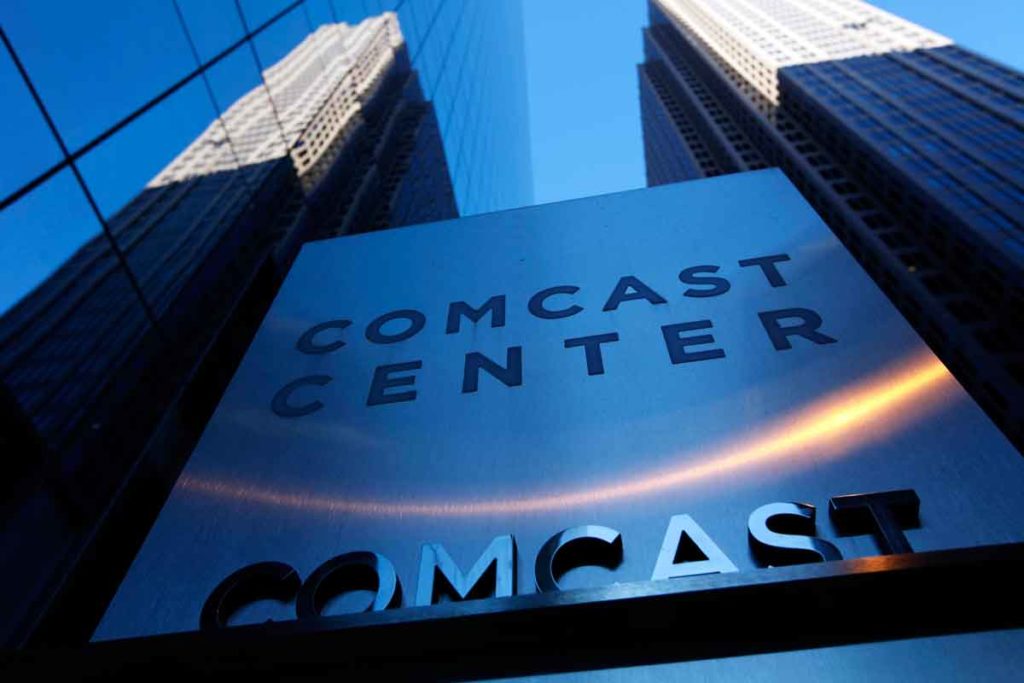
Under a President Donald Trump, cable and phone companies could gain new power to influence what you do and what you watch online – not to mention how much privacy you have while you’re at it. Republicans who generally oppose regulation seem likely to take charge at the Federal Communications Commission, the government’s primary telecom regulator. That alone could mean the end of rules designed to protect privacy and individual choice on the internet. Those rules were enacted over the past several years under the Obama administration. Under Trump, “the FCC will be a lot more focused on getting government out of the way,” said Berin Szoka, president of TechFreedom, a think tank that opposes much regulation. Phone and cable companies routinely protest that regulation lead them to invest less in their networks, harming their ability to deliver better service. Deregulation raises concerns for consumer advocates – not just in terms of rolling back rules, but also potentially allowing more huge mergers, which several analysts expect despite Trump’s campaign swipes at big media . Under the coming administration, a laxer FCC could result in even higher cable and internet bills, worse customer service and fewer choices, says Harold Feld, senior vice president at public-interest group Public Knowledge. Of course, it’s difficult to know exactly what to expect, given Trump’s aversion to policy specifics and frequent reversals during the campaign. Representatives for Trump’s transition team didn’t reply to requests for comment. NET NEUTRALITY One possible first target: Rules that aim to protect individual choice and innovation on the internet. Suppose that firing up Netflix or YouTube led only to delays and stuttering playback that still counted against the limited data in your broadband plan – a sharp contrast to the speedy video app offered by your phone or cable company, which incurs no data costs. That’s one scenario the Obama-era FCC sought to ward off with “net neutrality” regulation that requires internet providers to treat all data traffic equally on their networks, as the internet has historically worked. Without net neutrality, your access to many popular services might be degraded by your local cable or phone company. Startups could have trouble delivering new video or virtual-reality services. Companies that provide internet service could find it easier to push their own options instead. The net-neutrality rules are popular, so they’re not likely to completely disappear under Trump. But the FCC might well be more restrained in enforcing them. Internet providers could use subtle tactics and behind-the-scenes maneuvers to change people’s behavior and make more money, suggested Matt Wood, policy director at the public-interest group Free Press. Consumers might eventually find that they have fewer services to choose from online, or that using them is more difficult or expensive. PRIVACY, OPENNESS AND INTERNET ACCESS If the Trump FCC whacks away at existing regulations, cable and phone companies are going to find it a lot easier to mine your browsing habits and other information for data they can use to target ads at you. Verizon, for example, is eager to build a digital-ad business to compete with Google and Facebook. But recent privacy rules force them to ask customers for permission before using their data. Those companies have made no secret of their dislike for this requirement. The FCC’s effort to “open up” the cable box in ways designed to give you more options for hooking up TVs and streaming gadgets to cable service is likely dead. Its effort to subsidize internet for low-income people may face budget cuts, although cable companies do offer separate cheap internet options for low-income people. MERGERS During the campaign, Trump spoke out several times against media giants, in particular when he said he’d reject AT&T’s $85.4 billion acquisition of Time Warner and that he might look at breaking up Comcast and NBCUniversal. But some analysts think that with Republicans in charge of agencies like the FCC and the Department of Justice, mergers are more likely to sail through. The new administration might make it easier for AT&T to buy Time Warner and reserve some of the conglomerate’s TV programs and films for its own subscribers, said MoffettNathanson analyst Craig Moffett. Analysts had expected regulators to impose consumer-protection conditions on the merger if it’s approved. But under the Trump administration, AT&T might remain free to hold back new episodes of “Game of Thrones” for a few weeks – or maybe even everything on HBO – unless you’re an AT&T cellphone or home internet customer, he said. If so, Verizon or Charter might go shopping for their own entertainment conglomerates to compete for customers. That could create a world in which the TV you watch would be heavily influenced by the company that supplies your internet service. AND A BIG WILDCARD But Trump’s FCC could also do something unexpected. Public Knowledge’s Feld, for instance, worries that the administration could harness the FCC’s existing tools to police media companies and limit freedom of the press. For instance, the FCC could threaten to condition renewal of broadcast licenses on how news programs cover the administration, said Floyd Abrams, a longtime First Amendment lawyer. The agency could threaten to go after a company like Comcast, which owns NBC and MSNBC, for a net neutrality violation on its cable side to try to pressure coverage. “The FCC has so much authority over policies which have an enormous and direct impact financially” on the industry, Abrams said. “Even an informal nudge in one direction or another, informal pressure of one sort or another, can have major impact.” Of course, such action could bring Trump into conflict with the GOP Congress, which generally favors limits on FCC power. But there’s no way to know how that would play out at this stage. Republished with permission of The Associated Press.
Robert Bentley highlights need for faster internet in rural Alabama

Gov. Robert Bentley is meeting with rural educators to highlight his plan to expand high-speed internet service across Alabama. Bentley visited the southwest Alabama town of Monroeville on Monday, saying an area can’t have a top educational system without a fast connection to the digital world. Bentley hopes to use Education Trust Fund money to match a federal grant program called E-rate to expand connectivity in rural parts of the state. A 2015 Federal Communications Commission report found almost 35 percent of Alabamians don’t have high-speed internet service. Some rural schools, like Monroeville Elementary, have updated technology like personal laptops but are still hobbled by expensive and spotty internet service. Republished with permission of the Associated Press.


